- Home
- Juliet Marillier
The Harp of Kings (Warrior Bards) Page 9
The Harp of Kings (Warrior Bards) Read online
Page 9
I think of the meeting we just attended, at which I might almost as well have been invisible. “Nothing much yet, sorry. Uncle Art, I have a question. About the heir. Is there some reason Cathra and his advisers haven’t trusted him with something so important? He’ll be king soon. He’ll have the power to give all of them orders. And . . .” I hesitate, suddenly aware that I have no real evidence to support my misgivings.
“And?” echoes Archu quietly.
“His bodyguard’s on high alert even when Rodan’s in his own hall with his own people. Everywhere the prince goes he’s shadowed by one or the other of those two guards, or that’s how it looks. I wonder if they’re anticipating foul play. A rival with a backup plan, maybe.”
“Possible,” Archu says. “Someone who knows about the harp? The person responsible for the disappearance?”
“That individual would need a contact in the nemetons.” Brocc plucks out a tricky little tune as he speaks. “An ordinary person couldn’t walk in there and remove the harp from its spell-guarded cave. Either Brother Marcán’s lying or his trust in his brethren is misplaced.”
“That will be for you to investigate,” says Archu. “With greatest care and subtlety, Donal. Get it wrong and you could cause deep offense. We don’t want you banned from visiting the nemetons. You’ll be our eyes and ears in there. Talk to the younger druids, the fellows who haven’t been there so long and are perhaps missing home. They may be more open with you. I’ll look into Tassach. The man’s not at court now, but he’s expected here some time before the ritual, with his family. I’ll make discreet inquiries about the other contenders. With midsummer so close, and none of them making a claim yet, that line of investigation seems unlikely to bear much fruit. But you have a point about the prince’s security. We should be alert for any hint of trouble in the kingdom. Disputes between the chieftains. Disagreements with neighboring territories. Anything at all, bring it to me. Even if it seems to be only gossip.”
Something occurs to me. “Donal? You should ask the druids what the Harp of Kings looks like. That’s one of the first questions we should have asked. Right now, we wouldn’t recognize the thing if it was right in front of us.”
“It’ll look old,” says Brocc with a smile. “Very old.”
“Something about Marcán’s account of this doesn’t add up,” I say. “Whoever took the harp must have had the ability to undo the spell or charm that kept it safe. That means the thief was a druid. But why would the druids undermine their own ritual?”
Brocc runs his fingers across the harp strings. “The answer may lie in an old tale,” he says. “Druids have a deep well of tales. I hope they will be prepared to share them with a lowly minstrel.”
“Don’t play any of our more ribald songs while you’re in there. You don’t want to be thrown out for corrupting the novices.”
“I’ll be good,” my brother says, absently playing a few measures from a song whose words would make any druid blush. “Promise.”
11
BROCC
In the morning I am escorted to the nemetons by a druid in his middle years, his robe green, not cream like Marcán’s, and his plaits not winter white but crow dark. Brother Olann is his name. He meets me at the main gate to the royal establishment and leads me along the track outside the fortress wall. One of the royal guards follows at a discreet distance, but when we reach the branching path that leads into those woods—the druid woods—the guard halts.
“He will leave us here,” Olann explains. “Only invited guests may pass through Danu’s Gate.” As the two of us walk on, the gate comes into view within the woodland: an archway fashioned from cunningly woven withies. It looks completely open, as if anyone could walk through. There is no sign of any guard. A song begins to form in my mind. But through that gate no man could pass, unless he knew the word.
If there is a word, something to unlock whatever charm has been laid on Danu’s Gate to keep out intruders, my companion does not speak it aloud. But as we pass beneath the arch, the harp I am carrying on my back releases a single note.
“Ah,” says Olann softly. “It seems you are welcome.”
“If so, I am honored.” This is solemn and serious. I should take my sister’s advice and play none of the lighter tunes while I am here. Though surely even druids must enjoy a little fun from time to time.
Olann takes me further along the broad path. What seems from the hill of the royal fortress to be a compact woodland now reveals itself as a far greater forest, the oaks strong giants stretching their dark limbs toward the sky, the hollies fearsome guardians of the mysteries beyond. There are yews, their great trunks touched to rose in the morning light, their branches offering a tangled embrace. Fear not to linger, wanderer, within this ancient bower. This glade has sheltered many a soul in dark and doubtful hour . . . Most likely the trees have provided shelter in glad and peaceful hour as well. But the other would make a better song. The traveler would stop, of course, and rest under the yews, and perhaps dream of his own death, yews being often associated with passing from one world to another.
As we move further into the forest, I start to see signs of human habitation, though they are not houses in the way most folk use that term. These dwellings have been built with great skill right among the trees, or up against rocky outcrops, and they seem a natural part of the landscape, though when I look carefully I can see the hand of humankind—simple plank bridges over streams; a clearing in which neat vegetable beds lie between patches of unscythed grass. Tiny birds dart after flying insects. A young blue-robed druid works with a pitchfork, spreading straw between the vegetables. As we pass he straightens up, shading his eyes as he looks our way. For a moment I am reminded of someone, but I cannot think who that might be. The blue-robed man smiles, nods in our direction, then returns to his work.
“We grow much of what we eat,” Olann says. “Our novices understand the turning of the year, and the give-and-take required to survive in the physical world. Indeed, that lies at the very heart of our ritual. But there’s nothing like getting your hands dirty to bring the lesson home. So I always say. Some would disagree, of course.” Perhaps I look surprised, because he smiles and adds, “Druids thrive on argument, Donal. You’ll learn that soon enough if you spend time with us. Even the most senior among us engage in fierce debate.”
“May I ask a question?”
He lifted his brows. “Of course.”
“It was not made clear to me whether this visit is for a full day or only a few hours. Or whether it might be the first of several. I don’t wish to be presumptuous, Brother Olann. I am honored to be invited here and will be happy with whatever is offered.”
“But?” He’s grinning now. Perhaps he can see right through me. Right to the part of me that’s thinking, I wish I wasn’t here to spy. I wish I could relax and enjoy myself, because this is the best thing that’s happened to me for a long, long while.
“I believe there will be much to learn here. I am sure your musicians will be busy, with their studies or . . . or getting their hands dirty in one way or another. But I hope very much that they can make time for me. And that I can share what I know with them.”
“Yes?”
I wonder if this is something druids do, offering a question instead of an answer. But then, I haven’t asked my own question yet. I hadn’t thought I would need to. “I do not believe a few hours, or a single day, will be sufficient for that,” I say, inwardly kicking myself for being discourteous. “I’m sorry, Brother Olann. I know how rarely you let outsiders in. It is not for me to say how long I should stay. This place is setting its spell on me, I believe. Calling to me.”
“Perhaps we will make a druid of you, Donal.” His smile is warm; he is not mocking me. “Brother Farannán, our High Bard, is aware that you are visiting us today. It is unlikely that you will see him, but he has told us to exercise our judgment. I understand you and y
our fellow minstrels generally provide court entertainment in the evenings, so you’ll want to be back there before suppertime. For today, you will eat the midday meal with us and spend time with some of our musicians. Alas, I am not among their number; my expertise lies in the vegetable patch, the chicken coop, and the cookpot. If nothing else, I can promise you a good dinner. And if all goes well, an invitation will be forthcoming for you to visit whenever you wish.”
It’s my turn to smile. “Thank you. And apologies again if I spoke out of turn.”
“You meant no harm, I am sure. There are two rules you should follow here, apart from showing common sense and consideration. The novices will show you how our community is laid out and explain where you may or may not go, both within our dwellings and out here under the trees. If a visitor fails to respect those boundaries, he will most certainly never enter this place again.”
I nod, chilled by the sudden change in his tone. “I understand, Brother Olann. And the other rule?”
“Remember that the novices have rules of their own to follow; rules the breaking of which could see them lose their places in our community. You can imagine, I am sure, what that would mean to a man close to completing a stage of his novitiate.”
Does he know I’m here because of the Harp of Kings? His name wasn’t mentioned in the meeting with Lord Cathra and the others; I must assume not. “I promise that won’t occur, Brother Olann. I hope the novices will warn me if I accidentally venture close to forbidden ground, whether it be a pathway trodden by human feet or only by human thoughts. I say that because I don’t know what their rules are. Except, as you mentioned, showing common sense and consideration.” Morrigan’s curse, now I sound like Dau, full of my own importance. “I’ll do my best. I promise.”
* * *
* * *
I find myself in the company of three blue-clad novices, all around my own age, and all capable harpists and singers. The time passes unheeded as we exchange our favorite stories and songs. We argue amicably over the best way to create unusual rhymes and how we might make a rhythm more striking or a tune more expressive. It is absorbing to compare instruments, to discuss the best strings and where to obtain them, and what distinguishes the tone of one harp from another. I expect our conversation might be considered tedious by some. Certainly, my fellow trainees on Swan Island would soon tire of it. I can imagine Dau half shielding an extravagant yawn. But I am happy. I feel safe. I am content.
And yet. And yet I have a job to do. If it were not for the Harp of Kings, I would never have been admitted here. None of these novices has mentioned that precious harp or the midsummer ritual, and I cannot find a way to ask. We are in a rock chamber, but I do not know if this is close to the cavern where the Harp of Kings is usually kept. It is a good place for music. The sound is sharpened and clarified by the stone walls; out under the trees it would soon lose itself. Besides, now gentle rain is falling—when another man comes in, he is holding a shawl over his head, the woolen cloth gleaming in the lamplight with little beads of moisture.
“A damp day,” he observes. It is the druid who was tending to the garden. Again, I have that odd sense that I have seen him before, though I do not see how that is possible. His hair is a soft brown, not plaited but loose on his shoulders. His features are pleasant without being particularly memorable. I like his smile.
“Brother Faelan, welcome,” says one of the others, red-haired Brother Ross. All three of them have risen to their feet as if Brother Faelan were their senior, though I judge him to be not much older. I stand up, too; as an outsider, I should show respect if it is due. “We were not expecting you this morning.”
“I can’t stay long,” says the newcomer. He has the voice of a singer. “I heard we had a bard in our midst and wished to greet him. Donal, is it? That is an interesting old harp; it looks well loved and well used.”
“Given to me by my teacher.” It feels uncomfortable to lie to this man. “It has traveled many miles with me. A faithful companion. A second voice. Are you, too, a harpist, Brother Faelan?”
“I play a little.” The expressions on the others’ faces tell me this is an understatement. “I regret that I cannot join you; Brother Farannán is expecting me. Will you be staying long in the nemetons?”
“If I am given approval, I will be coming in and out each day for a while.”
“I have a particular interest in tales,” Brother Faelan says. “I work a great deal with Brother Odhar, our lore master. That is, when I am not occupied in teaching my fellow novices here. I would welcome the chance to speak with you when the opportunity comes. Perhaps we might play together a little?”
“It would be an honor,” I say. From the way the other novices are hanging on his every word, I’m guessing this unassuming person is good at what he does. Teaching? When he’s still a novice? Now is not the time to ask questions, for it’s plain Faelan is in a hurry. He’s heading out of the cavern now, with a small, apologetic bow.
“Later, then, my friend. Be welcome among us.”
Brother Ross makes it easy for me. When Faelan is gone, he says, “An unusually fine harpist; he’s always been well ahead of the rest of us. Brother Farannán trusts him to teach us, most of the time. Of course, he’s been here awhile.”
I’m not sure if he means Faelan or the High Bard, but one of the others, Sioda, gives me the answer. “He’ll be moving into the second stage of the novitiate by Lughnasadh.”
I wish I knew more about druids. I do know much of what they do is secret, and I don’t want to offend these men by asking awkward questions. “Is it very long? The training?” Better to sound naïve or stupid than to blunder in with something more pointed.
“Three times three,” says the other novice, Flann. “Years, that is. Three stages of learning. By the end of the first, you know a lot of stories. And songs, if you’ve any promise as a bard. We won’t see Faelan so much once he moves higher.”
“We might,” says Ross, trying out a run on his harp, which he’s just retuned to a mode I seldom use, one with halftones in awkward places. The result is unsettling. I can see how I might build a melody on that, but I’m not sure I want to. It occurs to me that certain modes or rhythms might themselves carry a kind of magic; to play them might bring forth strange spirits or in some way alter the nature of things. Make a stream flow backward, maybe. Or cause a tree to flower in winter. Or turn a man against his best companion.
“Would you compose a chant or song in that mode?” I ask.
Ross looks taken aback and I wonder if I’ve broken a rule. Then I remember we were talking about Brother Faelan and his progress through the novitiate. “I am impressed that Brother Faelan is expert enough to teach the rest of you,” I say, forcing my mind back to that conversation. “You said something about not seeing him so much after he completes his first three years. Why is that? I’m sorry, perhaps I ask too many questions.”
“We’ll trade you,” says Flann, grinning. “Teach us the hardest jig you can play, and we’ll answer five more questions.”
The others look at him askance, but neither makes comment.
“Ten,” I say.
“Ten for a jig and a song. The kind of song you play to lift people’s spirits. And I don’t mean druids.”
“Done,” I say. “Provided it’s not going to mean Brother Farannán or Brother Marcán storming in and throwing me out for putting impure thoughts in your minds.”
The three of them burst out laughing. “Shh,” hisses Sioda, a finger to his lips. “Don’t let out the big secret.”
“What’s that?” asks Flann.
“That there might be one or two of those in our minds already. Not Brother Faelan, of course; his thoughts are all on higher matters. But us three . . .”
“You talk too much, Sioda,” says Ross, but he’s smiling like the others. “As for that question about the three years, Donal, much of our work in
the first stage of the novitiate is singing and playing, learning tales and rhymes, memorizing the druidic lore. In the second stage we work on other essential skills, particularly healing and herbalism. Though we musicians will keep up our practice—we all have hopes of eventually being chosen to play for rituals. When he completes his three years, Faelan will be with us less. Probably not teaching us; one of the more senior druids will take on that responsibility.”
“More senior, less skilled,” murmurs Sioda. “But there it is. Faelan says we’re getting better at helping one another now. That’s reassuring.”
Before I can snatch the opening offered by that comment about rituals, Ross says, “You asked about the mode I was using, with the flattened second. The Christian monks have their own names for the modes, but we druids call that one the yew mode. I’m composing a chant based on it—more for a challenge than with any expectation my brethren will use it, since folk find the intervals difficult to sing. They’re more comfortable in oak mode, or for something tinged with sadness, perhaps willow. If you stay here awhile you could accept a challenge, too. Write a dance tune in yew mode. Now that, I imagine, would be difficult.”
Not really. It would be a strange, melancholy dance, charming in its awkwardness. I imagine a small figure executing the steps, all alone in a clearing with darkling woods on every side, and shadow-shapes watching. The dancer is not human; it is an entity with unnaturally big eyes in an anxious, long-nosed face. Get one step wrong, and the shadows will come forth. I’d call the tune “Owl Eyes Caper” . . .
“Donal?”
“Sorry, what were you saying?” I must concentrate. One of them may drop a clue, and I’ll miss it because I’m off in a dream.
Ross is looking at me quizzically. “I asked if you could write a dance tune in yew mode. But I think you have already begun to do so—I’ve seen something of the same look on Faelan’s face when he’s in the throes of creation. At such times he becomes deaf to all but his inner voice.”

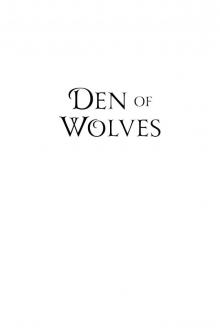 Den of Wolves
Den of Wolves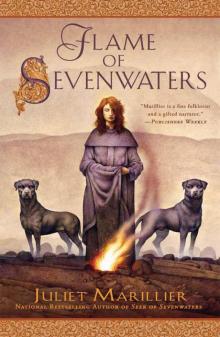 Flame of Sevenwaters
Flame of Sevenwaters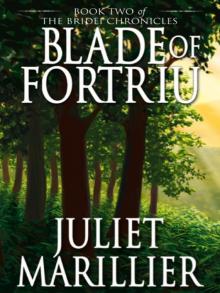 Blade of Fortriu
Blade of Fortriu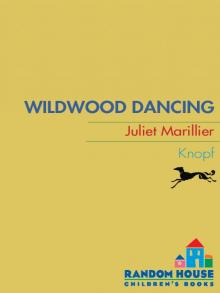 Wildwood Dancing
Wildwood Dancing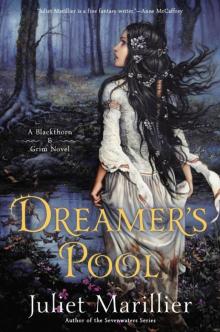 Dreamer's Pool
Dreamer's Pool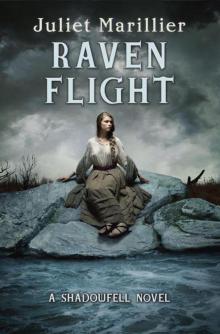 Raven Flight
Raven Flight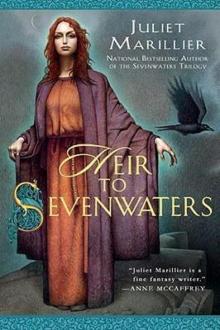 Heir to Sevenwaters
Heir to Sevenwaters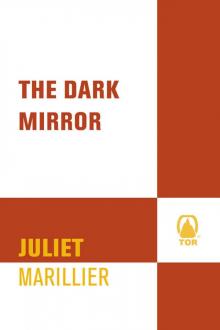 The Dark Mirror
The Dark Mirror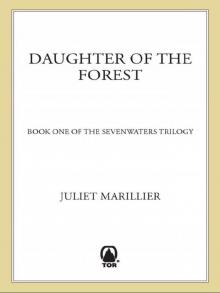 Daughter of the Forest
Daughter of the Forest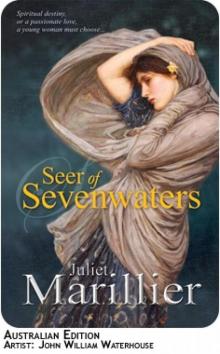 Seer of Sevenwaters
Seer of Sevenwaters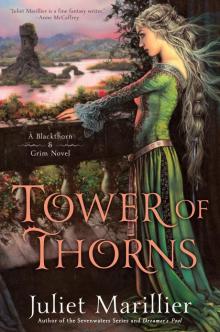 Tower of Thorns
Tower of Thorns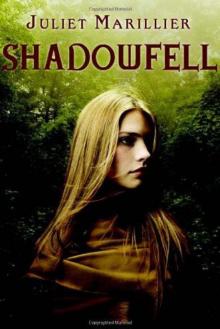 Shadowfell
Shadowfell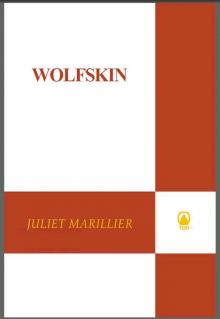 Wolfskin
Wolfskin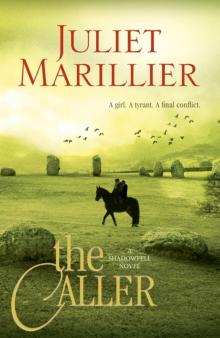 The Caller
The Caller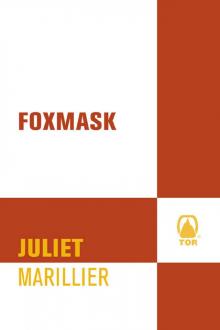 Foxmask
Foxmask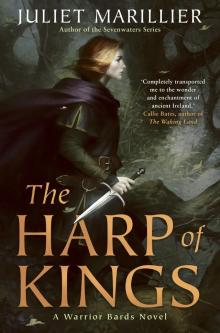 Harp of Kings
Harp of Kings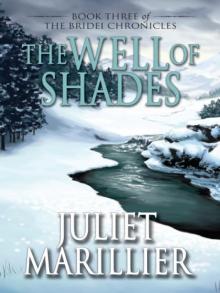 The Well of Shades
The Well of Shades Heart's Blood
Heart's Blood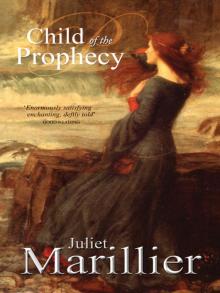 Child of the Prophecy
Child of the Prophecy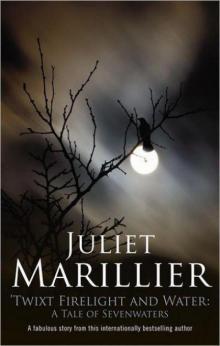 Twixt Firelight and Water
Twixt Firelight and Water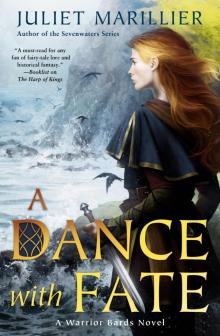 A Dance with Fate
A Dance with Fate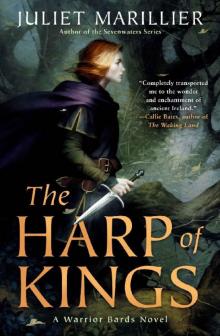 The Harp of Kings (Warrior Bards)
The Harp of Kings (Warrior Bards)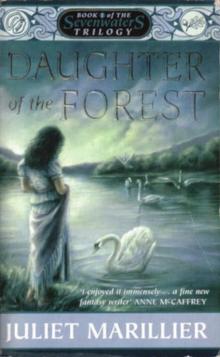 Daughter of the Forest (The Sevenwaters Trilogy)
Daughter of the Forest (The Sevenwaters Trilogy)![Sevenwaters [06] Flame of Sevenwaters Read online](http://i1.bookreadfree.com/i2/04/08/sevenwaters_06_flame_of_sevenwaters_preview.jpg) Sevenwaters [06] Flame of Sevenwaters
Sevenwaters [06] Flame of Sevenwaters![[Sevenwaters 04] Heir to Sevenwaters Read online](http://i1.bookreadfree.com/i2/04/12/sevenwaters_04_heir_to_sevenwaters_preview.jpg) [Sevenwaters 04] Heir to Sevenwaters
[Sevenwaters 04] Heir to Sevenwaters